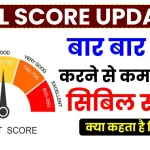$1,450 SSI Checks for Couples & $967 for Seniors: For millions of Americans, Supplemental Security Income (SSI) serves as a vital lifeline, offering consistent financial assistance to those who need it most. As of 2025, the Social Security Administration (SSA) has revised its benefit rates, with individual seniors eligible for $967 per month and qualified couples receiving up to $1,450. These payments aren’t just numbers; they’re a major part of many people’s monthly survival and stability.

Whether you’re a senior citizen planning for retirement, a caregiver supporting a loved one, or a professional helping clients navigate benefits, staying informed about SSI payment amounts, dates, and application procedures is essential. This comprehensive guide offers you detailed insights and tips to help you better understand the program, avoid delays, and maximize your income support.
$1,450 SSI Checks for Couples & $967 for Seniors
| Feature | Details |
|---|---|
| SSI Monthly Amount (Individuals) | $967 SSA.gov |
| SSI Monthly Amount (Couples) | $1,450 |
| SSI Monthly Amount (Essential Person) | $484 |
| Next Payment Date | April 1, 2025 (Tuesday) |
| Eligibility | 65+ or disabled with limited income/assets |
| Official Source | www.ssa.gov |
In 2025, the $1,450 SSI checks for couples and $967 for seniors continue to offer vital support to those with limited means. Whether you’re navigating retirement, supporting someone with a disability, or helping clients secure financial assistance, understanding SSI is key to economic stability. With clear eligibility rules, a dependable payment schedule, and resources like state supplements and direct deposit, you can better manage your finances and plan ahead with confidence.
Stay informed, stay proactive, and always refer to the official SSA website for the most accurate and up-to-date information.
What Is SSI and Who Qualifies?
Supplemental Security Income (SSI) is a federal income assistance program that offers monthly payments to individuals who meet certain age, disability, and income requirements. Unlike other Social Security programs, SSI doesn’t require prior work history. Instead, it’s designed to help those most in need, including low-income seniors and people with disabilities.
Basic Eligibility Requirements:
To qualify for SSI, applicants must meet the following core conditions:
- Be 65 years or older, blind, or disabled.
- Have limited income, such as minimal wages or small Social Security payments.
- Possess limited financial assets, typically under $2,000 for individuals or $3,000 for couples (excluding primary residence and vehicle).
- Be a U.S. citizen, national, or a qualified non-citizen with appropriate documentation.
For a complete list of qualifications and income/resource exclusions, visit the SSI Eligibility Page.
SSI Payment Amounts in 2025
The SSA uses an annual Cost-of-Living Adjustment (COLA) to keep SSI benefits in line with inflation. This helps recipients maintain purchasing power even as costs for essentials like food, housing, and healthcare rise.
2025 Federal Benefit Rates:
- $967 per month for eligible individuals
- $1,450 per month for eligible couples (both qualify)
- $484 per month for an essential person (e.g., caregiver or support person in your household)
Keep in mind: Your SSI payment might be reduced depending on other income sources, including part-time work, pensions, or gifts. Certain exclusions can help you retain more of your benefit—for example, the first $20 of most income is typically not counted.
2025 SSI Payment Schedule
Understanding the payment calendar can help you budget effectively and avoid surprises. SSI payments are typically issued on the first day of each month. However, when that date lands on a weekend or federal holiday, the payment is advanced to the last weekday of the prior month.
Sample 2025 SSI Payment Dates:
| Month | Regular Date | Adjusted Payment Date |
|---|---|---|
| March | March 1 (Sat) | Feb 28 (Fri) |
| April | April 1 (Tue) | April 1 (Tue) |
| May | May 1 (Thu) | May 1 (Thu) |
| June | June 1 (Sun) | May 30 (Fri) |
| July | July 1 (Tue) | July 1 (Tue) |
| September | Sept 1 (Mon) | Aug 29 (Fri) |
| December | Dec 1 (Sun) | Nov 29 (Fri) |
For a full, printable calendar of SSI payment dates, visit the SSA Payment Calendar.
How to Apply for SSI Benefits
Applying for SSI doesn’t have to be confusing. The SSA offers multiple options to get started, both online and offline.
Application Guide:
- Confirm Eligibility: Use the SSA’s Benefit Eligibility Screening Tool to ensure you qualify.
- Collect Required Documents:
- Birth certificate or ID
- Social Security number
- Income sources and bank account details
- Rent or mortgage and utility information
- Medical documents (if applying due to disability)
- Choose Your Application Method:
- Online: Visit ssa.gov/ssi to begin.
- By Phone: Call 1-800-772-1213 (TTY 1-800-325-0778).
- In Person: Schedule an appointment at your local Social Security office.
Tips for a Smooth Application:
- Double-check all information before submission.
- Submit copies, not originals, unless asked.
- Follow up regularly to monitor your application status.
Processing can take several weeks, especially if additional documentation is needed.
Maximizing Your SSI Benefits
While SSI amounts are fixed at the federal level, you can take steps to maximize your benefits:
- Report changes promptly: Life changes like moving, income changes, or marriage must be reported quickly to avoid overpayment or penalties.
- Check for State Supplements: Many states add extra money to the monthly federal benefit through State Supplementary Payments (SSPs). For example, California and New York offer some of the highest supplemental rates.
- Use Direct Deposit: It ensures your funds arrive securely and quickly.
- Avoid Overpayments: Failing to report income or household changes can result in overpayments, which the SSA will recover later.
How SSI Differs from Social Security Benefits
It’s important to understand the differences between SSI and other Social Security programs, such as Social Security Disability Insurance (SSDI) or retirement benefits. These programs are often confused but serve different purposes and populations.
| Feature | SSI | Social Security (SSDI/Retirement) |
|---|---|---|
| Funding Source | General Tax Revenue | Payroll Taxes |
| Age/Disability Requirement | Yes | Yes |
| Work History Required | No | Yes |
| Income Limits | Yes | No (SSDI has separate criteria) |
| Health Coverage | Medicaid | Medicare |
You may qualify for both programs, which is known as concurrent benefits. This situation typically arises when a person qualifies for a low SSDI amount that is supplemented by SSI.
Will You Receive Two SSA Checks in April 2025? What You Need to Know
Bigger Social Security Checks? You Might Also Get a Surprise Tax Bill
FAQs About $1,450 SSI Checks for Couples & $967 for Seniors
1. Can I receive both SSI and Social Security benefits?
Yes. This is known as receiving concurrent benefits. However, your SSI amount may be reduced based on your Social Security income.
2. Are SSI payments considered taxable income?
No. SSI benefits are not taxed by the federal government or by states.
3. What should I do if I miss a payment?
Contact the SSA at 1-800-772-1213 immediately. You can also check the status of your payments by logging into your My Social Security Account.
4. Do all states offer supplemental payments?
Most states do, but the amount and eligibility rules vary. States like California, New York, and Pennsylvania offer generous supplements, while others may refer you back to the SSA.
5. Can I work and still receive SSI?
Yes, but your SSI benefits may be reduced based on how much you earn. The SSA excludes the first $65 of earned income plus half of the remainder. Additionally, certain work-related expenses may also be deducted.
6. Does owning a home disqualify me from SSI?
No. Your primary residence does not count against the SSI asset limit.
7. What is an essential person?
An essential person is someone who lives with and provides care for an SSI recipient. They may be eligible for an additional $484 per month in benefits.











